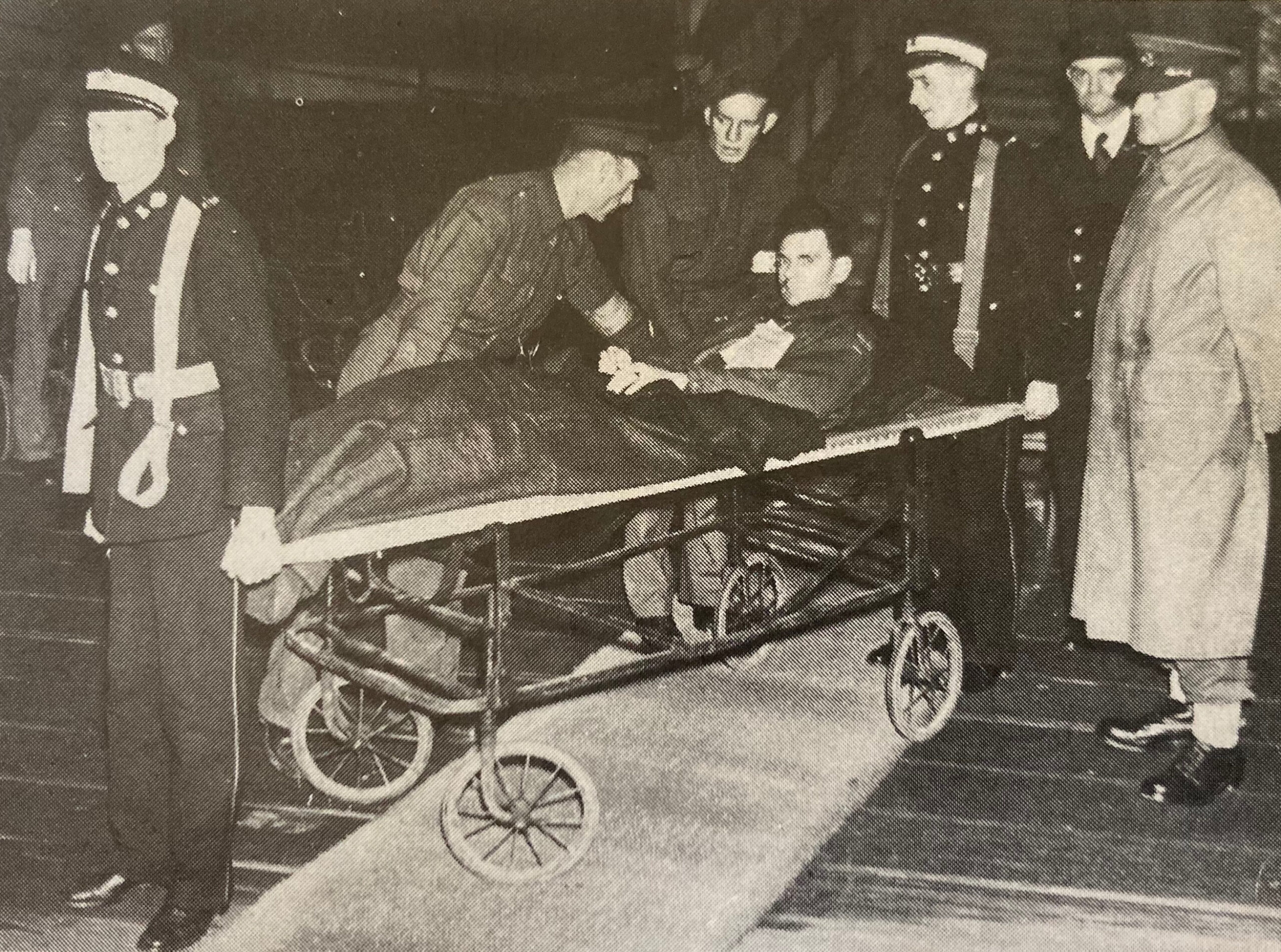Transcript
My first cinema visit as an adult, my Sergeant in St John came and tapped – I’m in the back row, tapped me on the shoulder, “Can you come out the back?” I think I may have had my arm around this girl, I’m not sure, but I thought well perhaps I’m chucked out the first night on duty. But he said, “I want you to come to Tilbury Docks, there’s a hospital ship arrived with all these injured soldiers.” 1944. So obviously I had to say goodbye to this young lady and I went down to Tilbury and we spent all night unloading the soldiers. It was, you know, in October, D-Day, yes, and some of them were terribly seriously injured. When you see a face mask with all bandages and – anyway, I was lucky enough, there’s a photograph of me there, maybe in a newspaper, and I tried to carry the feet because I’m sixteen, and he’s a schoolmaster, my friend, so he carried the head part which is much easier than carrying the feet as you can imagine, particularly on a ship coming from, you know, a hospital ship down to Tilbury Docks and off to wherever they went to hospital or, you know. That happened frequently of course from then on. Not every night obviously, but – and you still went to work in London the next day. With these hospital ships coming in, I’m not quite sure how frequent but obviously fairly frequent because D-Day had started and therefore a lot of people were injured and they were brought by ship only at night. If they came in the day time U-boats would sink them. So that’s why we had to do it at night.


